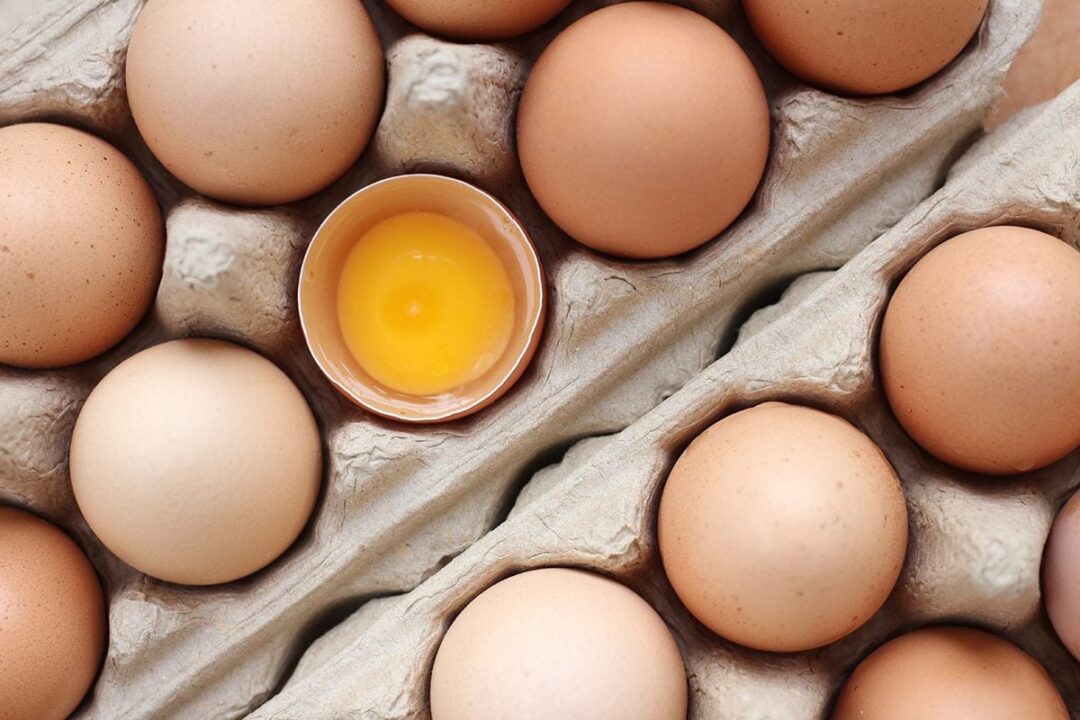Eggs are one of the most versatile and nutritious food sources available. They are relatively cheap, packed with essential vitamins and minerals, and incredibly easy to use in a variety of dishes. But when it comes to eggs, there is a debate raging between using fresh or frozen ones. So what’s the difference between fresh and frozen eggs, and which should you choose? In this blog post, we’ll explore the pros and cons of both so that you can make an informed decision about which type is right for your needs. Read on to find out more!
What are Fresh Eggs?
The main advantage of fresh eggs is that they are less likely to contain bacteria that can cause food poisoning. This is because their eggshells are less porous, so bacteria have less chance of entering it. They also have a higher nutrient content than older ones.
The main disadvantage is that they can be more expensive. The other disadvantage is that they can be more difficult to peel when hard boiled.
What are Frozen Eggs?

Source: parents.com
Frozen eggs can be a godsend when fresh ones aren’t available (or if you want to bake ahead). Here’s what you need to know about using them:
They can be used straight from the freezer (no thawing necessary) in most recipes that call for cooked eggs, such as quiche, frittata, and stratas. Simply add a minute or two to the cooking time.
Their whites make stable meringues. Whip them just as you would fresh egg whites.
Frozen yolks are great for thickening sauces and custards, but won’t whip up into peaks like fresh ones will. Egg products Cocotine are available in frozen form.
How to Choose the Right Egg for You?

Source: healthline.com
When it comes to eggs, there are a lot of choices. Fresh or frozen? Local or organic? Brown or white? How do you know which is the right egg for you?
Here are a few things to consider when choosing them:
- What do you want to use them for? If you’re looking for an egg to fry up for breakfast, any old egg will do. But if you’re planning to use them in a recipe where they are a key ingredient, like a cake or quiche, you’ll want to choose fresh, high-quality ones.
- Will they be cooked or raw? If you’re going to be eating the eggs raw, as in a salad, make sure to choose fresh, local ones that have been refrigerated. Raw eggs that have been sitting out at room temperature can harbor bacteria that can make you sick.
- How much money are you willing to spend? Organic, free-range eggs tend to be more expensive. But many people feel they’re worth the extra cost because the hens are treated better and the eggs are more nutritious. If price is a consideration, look for deals at your farmers market or grocery store.
- Do you have dietary restrictions? If you’re vegan, vegetarian, or following a Paleo diet, look for their substitutes made from plant-based ingredients like tofu and chickpeas.
Whichever eggs you choose, make sure to store them properly.
Which Type of Egg is Better for Baking?

Source: tasteofhome.com
When it comes to baking, you want to use the freshest eggs possible. This is because they have a higher yolk-to-white ratio, which means they will produce a lighter, fluffier cake. However, if you only have frozen ones on hand, they will work just fine – you may just need to add an extra white to your recipe.
Are Fresh Eggs More Nutritious than Frozen Ones?
There are many debates about which type of egg is more nutritious, fresh or frozen. Some people believe that fresh eggs are more nutritionally dense because they have not been exposed to the freezing process which can deplete some of the nutrients. While there are some nutrients that are lost during the freezing process, it is minimal and both fresh and frozen eggs are still a good source of protein and other nutrients. The main difference between the two is that fresh ones have a shorter shelf life and must be used within a few days while frozen ones can last for months.
How Long Do Fresh and Frozen Eggs Last?

Source: tastingtable.com
The shelf life of eggs is affected by many factors, including whether they are fresh or frozen. Fresh ones can last anywhere from 3 to 5 weeks when stored properly, while frozen ones can last for up to a year.
To get the most out of them, it is important to know how to store them correctly. Fresh eggs should be stored in the refrigerator in their original carton. The carton helps to protect them from bumps and keeps them from absorbing strong smells from other foods. Frozen ones should be stored in airtight containers in the freezer.
How to Store Fresh and Frozen Eggs?
Fresh eggs should be stored in the fridge as soon as possible after being collected. If they are not going to be used within a week, they can be frozen. They can be frozen for up to a year.
To freeze them, crack them into a clean container and whisk until the yolks and whites are combined. Label the container with the date and number of eggs, then place it in the coldest part of your freezer. When you’re ready to use them, thaw them overnight in the fridge before using.
Conclusion
Whether you choose to use fresh or frozen eggs depends on your needs and preferences. Fresh ones are generally preferred for their taste, texture and nutrition, while frozen ones can be used in recipes where the texture is less important and convenience is key. Whether you opt for fresh or frozen, just remember to keep its safety guidelines in mind when storing them!


